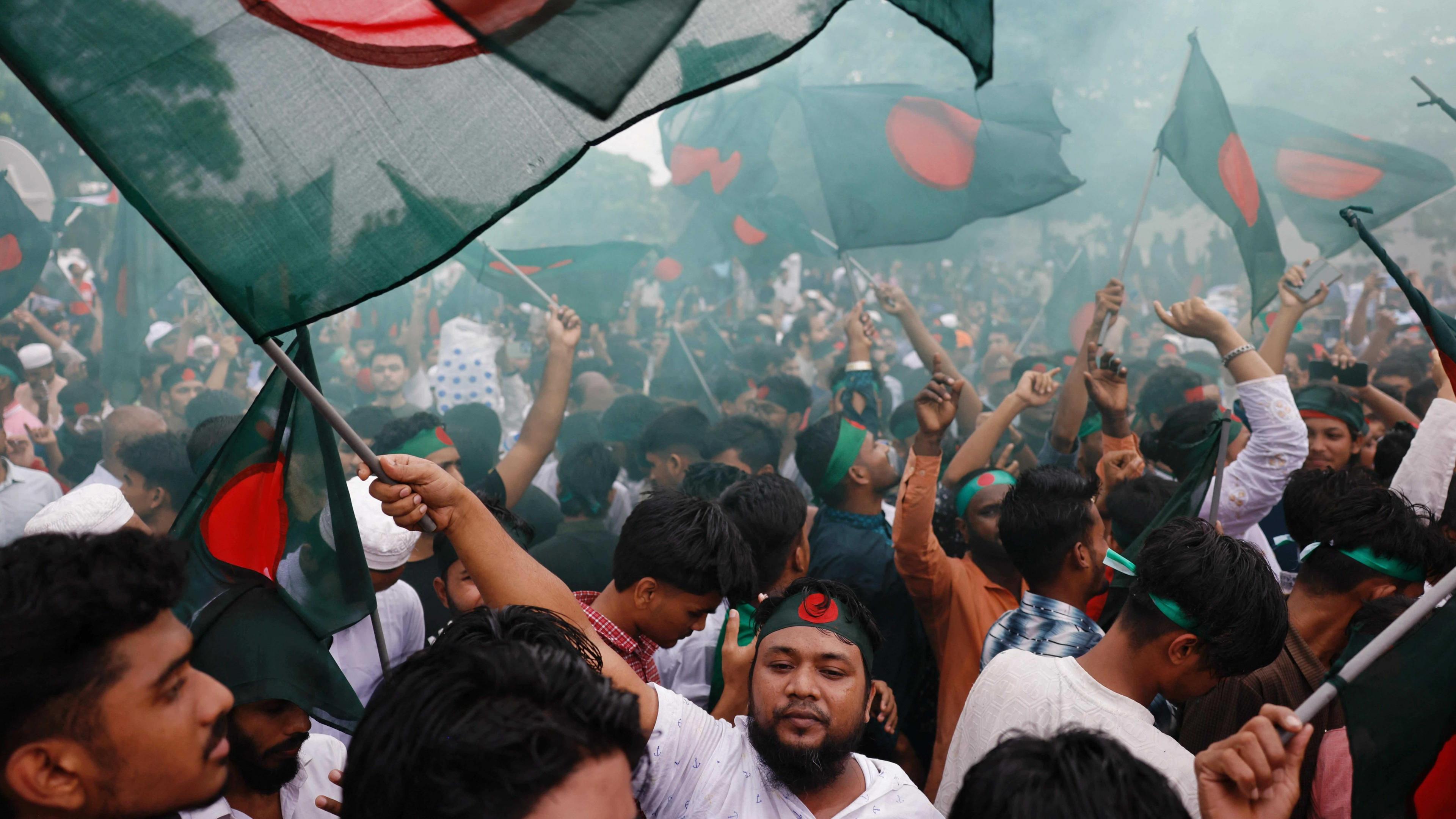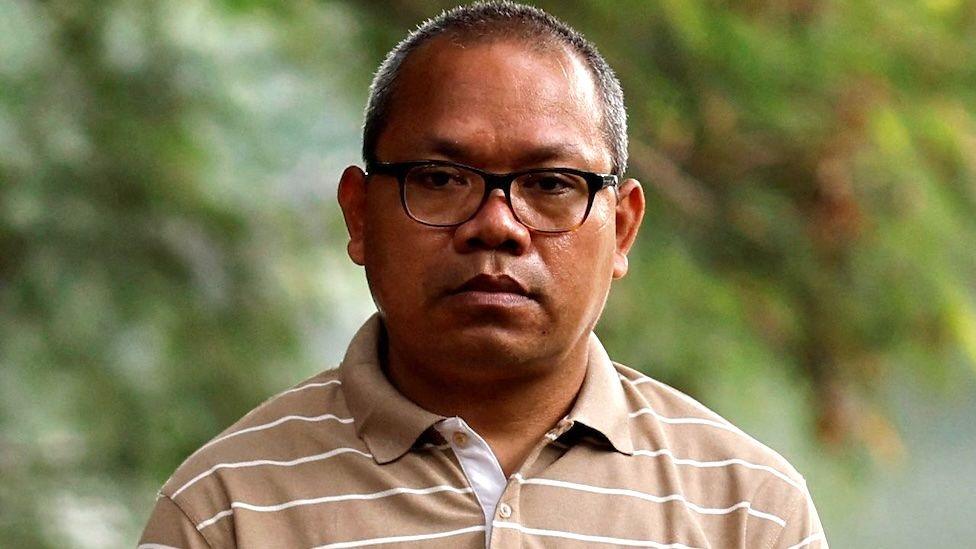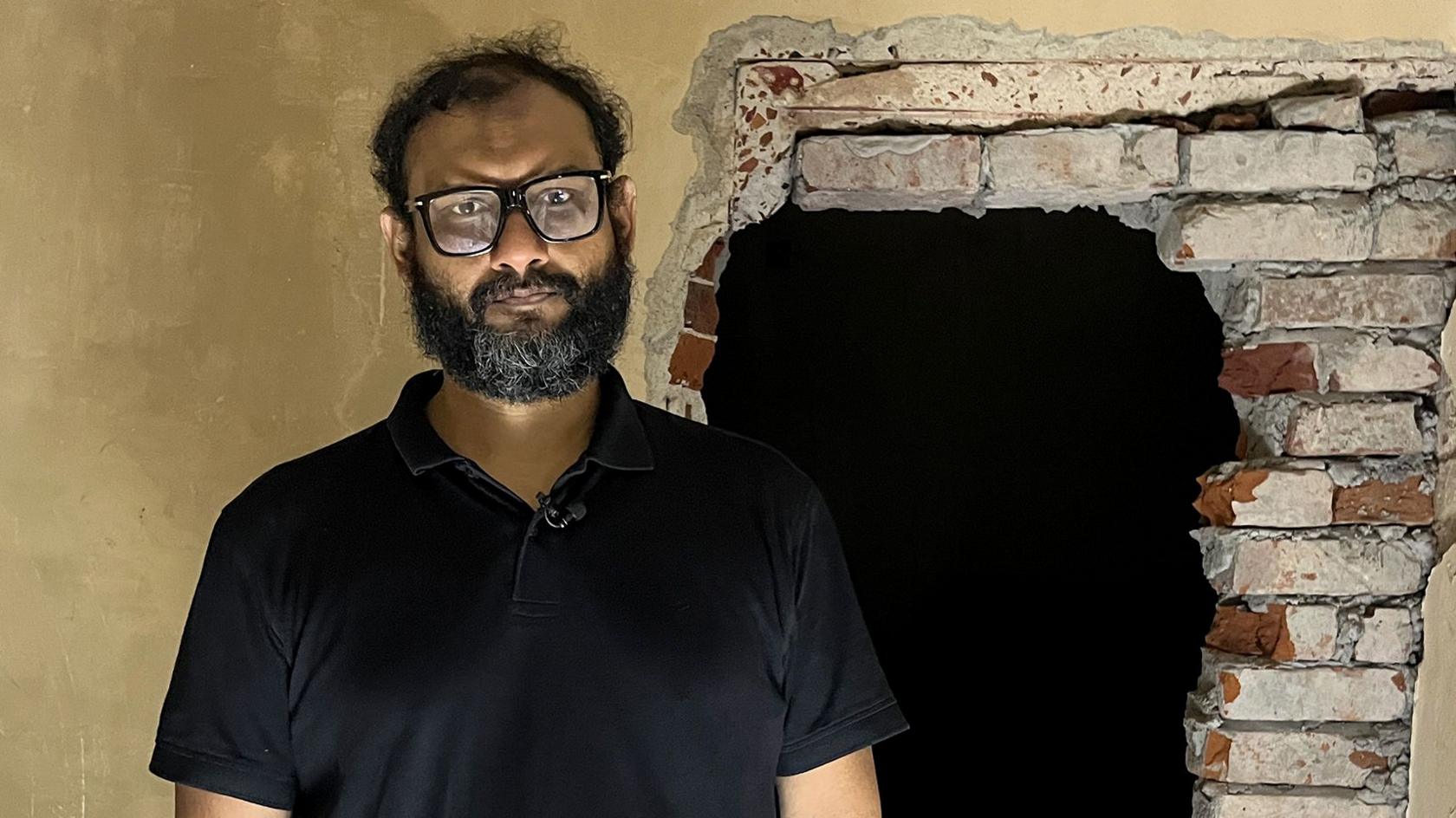Bangladesh announces election as country marks year since ex-PM fled

- Published
Bangladesh will hold its first elections since protests toppled its former prime minister next February, the country's interim leader said on the anniversary of her overthrow.
Muhammad Yunus made the announcement at the end of a day of celebrations for what some have called the country's "second liberation".
Sheikh Hasina fled to India on 5 August last year, following weeks of student-led protests, bringing an end to 15 years of increasingly authoritarian rule.
Nobel laureate Yunus was brought in to head a caretaker government days later, promising reforms which some say he has struggled to deliver amid continuing political turmoil and a struggle to maintain law and order.
Among the issues dividing the country's politicians has been the date of the election. Yunus initially suggested June 2026 as a potential date.
However, representatives of the Bangladesh Nationalist Party (BNP), as well as the Islamist Jamaat-e-Islami party and the student-led National Citizen Party (NCP), all joined Yunus on stage in the capital Dhaka on Tuesday.
Later, Yunus said he would write to the Election Commission to request the vote be held "before Ramadan in February 2026".
"For many years, none of us have been able to vote," the 85-year-old said in a televised broadcast. "This time, we will all vote. No one will be left out. Let us all be able to say, 'I cast my vote to set the country on the path to building a new Bangladesh'."
Tuesday also saw Yunus reiterate promises on widespread reform, reading out the "July Declaration", which seeks to recognise the student-led protests which toppled Hasina in the constitution.
Hasina's time in office was marked by widespread allegations of human rights violations and the murder and jailing of political rivals. Members of the Awami League government ruthlessly cracked down on dissent. The BBC has spoken to numerous people who were "disappeared" into a network of secret jails across the country.
But it was the student-led protest against a civil service jobs quota system which escalated into calls for the government to stand aside in July and August 2024 that eventually prompted Hasina to flee.
The government collapsed, and the Awami League has since been banned. Analysts note hundreds of Awami League supporters have been detained without trial over the last 12 months.
Sheikh Hasina's final hours as a hated autocrat
- Published7 August 2024
What sparked the protests that toppled Bangladesh's PM?
- Published6 August 2024
As part of the declaration read on Tuesday, those who were killed in the uprising will be recognised as "national heroes", Yunus said.
The document - which also promises a democratic state that would uphold the rule of law and moral values, as well as a justice process for those who engaged in violence during Hasina's rule - is seen by advocates as the basis of institutional reform, although critics say it is largely symbolic and without power.
Meanwhile, in an open letter to Bangladesh's citizens on Monday, Hasina argued she had not actually stood aside, describing the events of 2024 as a "coup".
"Despite claims to the contrary, I never resigned from my duties as your prime minister," she wrote.
"I believe in you. I believe in Bangladesh. And I believe that our best days are yet to come."
Hasina is currently on trial in absentia in Bangladesh, having refused to return to face charges which amount to crimes against humanity, related to the deadly crackdown on protesters which left hundreds dead. She denies the charges.
Related topics
- Published1 September 2024

